Introduction
Mastiff Exercise Needs are crucial for maintaining their health and happiness
- Regular exercise prevents obesity and keeps your Mastiff active
- Tailored activities can enhance your Mastiff’s physical and mental well-being
- Understanding your Mastiff’s energy levels helps in planning effective workouts
- Consistent exercise improves muscle tone and joint health
- Proper exercise routines can prevent behavioral issues
- Socializing your Mastiff through exercise strengthens bonds with you
- Exercise is essential for a long, happy life for your Mastiff
1. Understanding Your Mastiff's Exercise Requirements
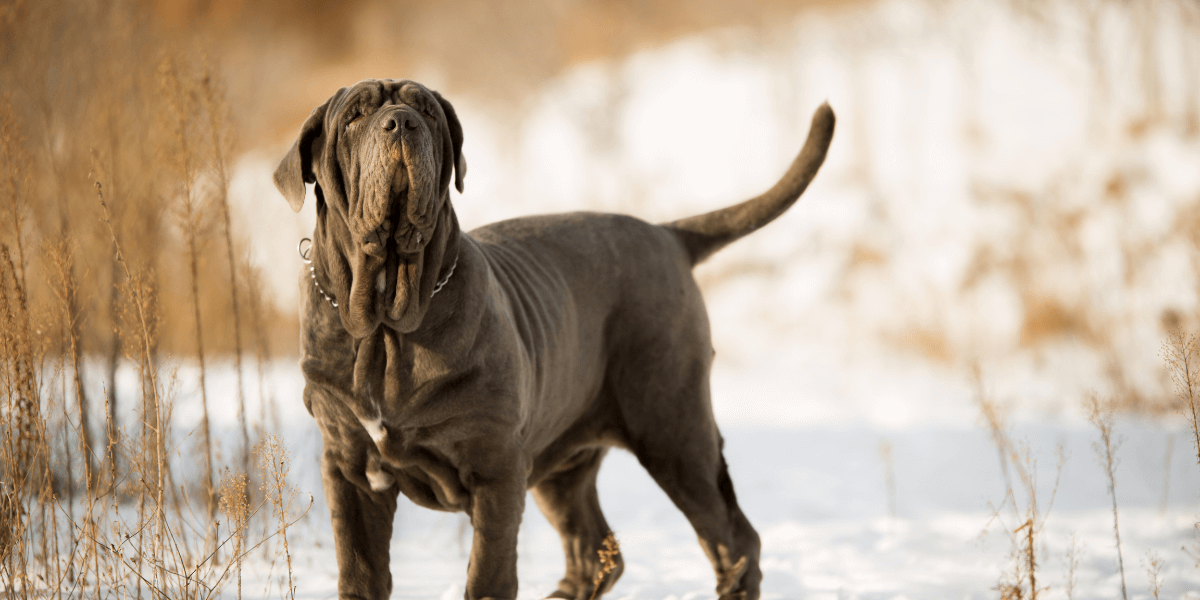
Mastiffs are known for their imposing size and gentle temperament
However, their exercise needs can be somewhat misunderstood
Here’s what you need to know:
- Activity Level: Still require consistent exercise to avoid weight gain and maintain muscle tone
- Daily Exercise: Aim for at least 30-60 minutes of moderate exercise per day
- Type of Exercise: Gentle walks, play sessions, and mental stimulation are ideal for Mastiffs
- Tailored Routine: Adjust exercise based on your Mastiff’s age, health, and energy levels
- Avoid Overexertion: Be cautious with high-impact activities to prevent joint stress
2. Creating an Exercise Routine for Your Mastiff
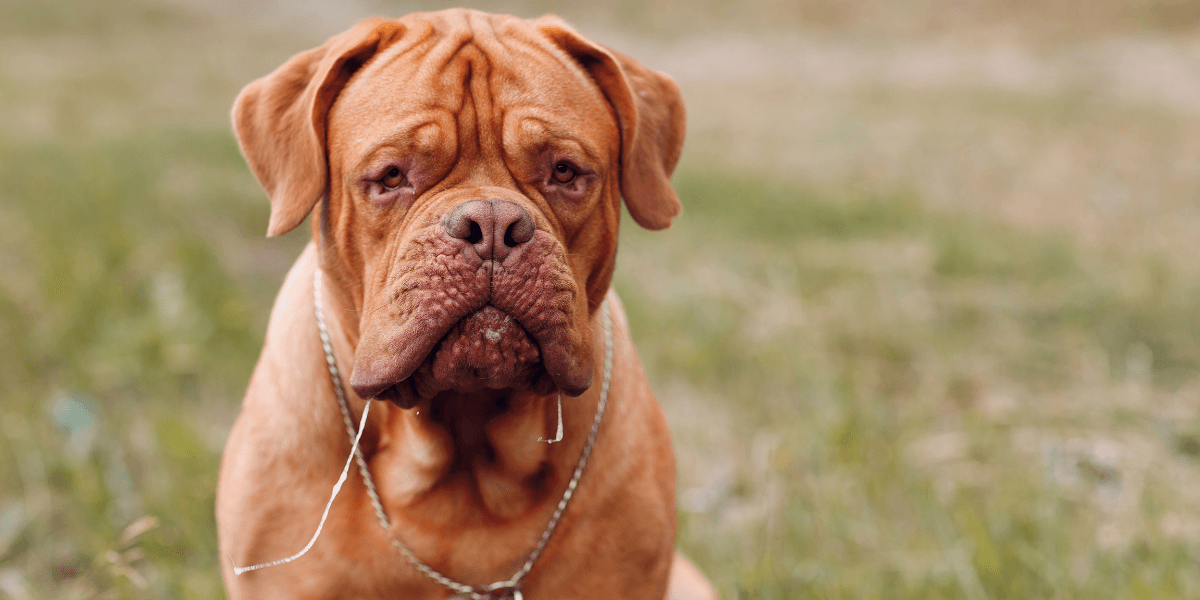
Establishing a consistent exercise routine is crucial for your Mastiff’s health
Here’s how to set up an effective routine:
- Consistency: Regular exercise helps in maintaining a healthy weight and preventing boredom
- Variety: Mix different types of exercises, such as walking, light jogging, and playtime
- Adaptability: Adjust the routine based on your Mastiff’s age, health, and energy level
- Gradual Increase: Start slow and gradually increase exercise duration and intensity
- Monitor Health: Watch for signs of fatigue or discomfort and adjust accordingly
3. Best Types of Exercises for Mastiffs
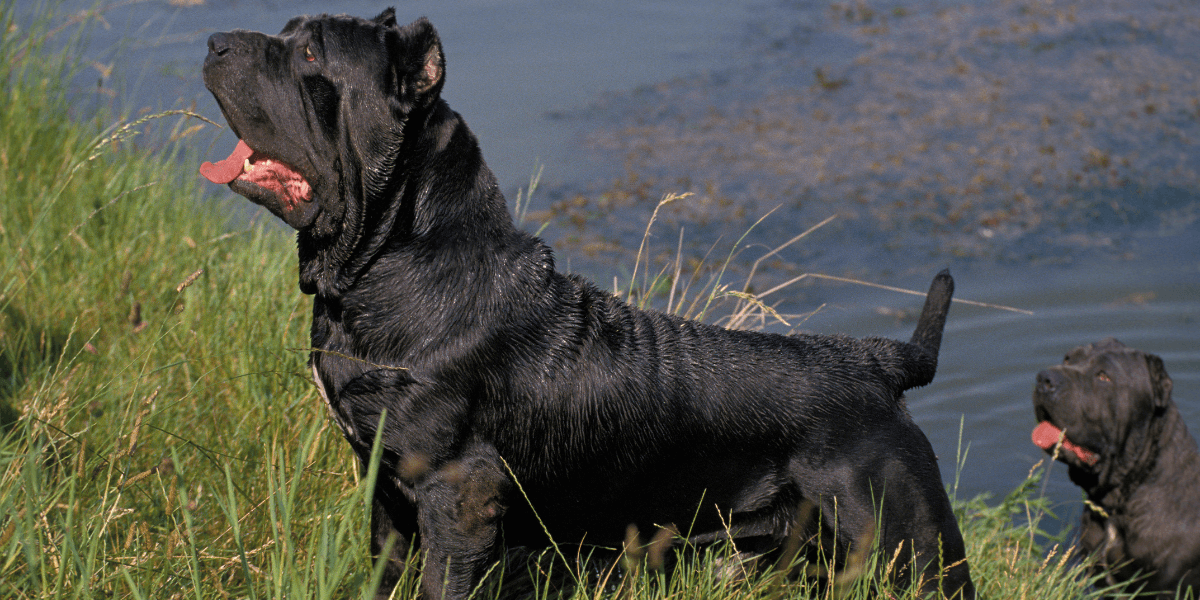
Different exercises cater to various needs
Here are some effective options for your Mastiff:
- Leisurely Walks: Ideal for maintaining cardiovascular health and managing weight
- Playtime: Use soft toys to prevent injury
- Swimming: A low-impact exercise that’s easy on joints and great for overall fitness
- Gentle Hiking: Provides mental stimulation and variety without high impact on joints
- Scent Work: Encourages mental stimulation and taps into their natural instincts
- Slow Jogging: Allows for a moderate workout while minimizing stress on joints
- Interactive Games: Engage their mind and body with puzzle toys and gentle tug-of-war
4. Exercise Mistakes
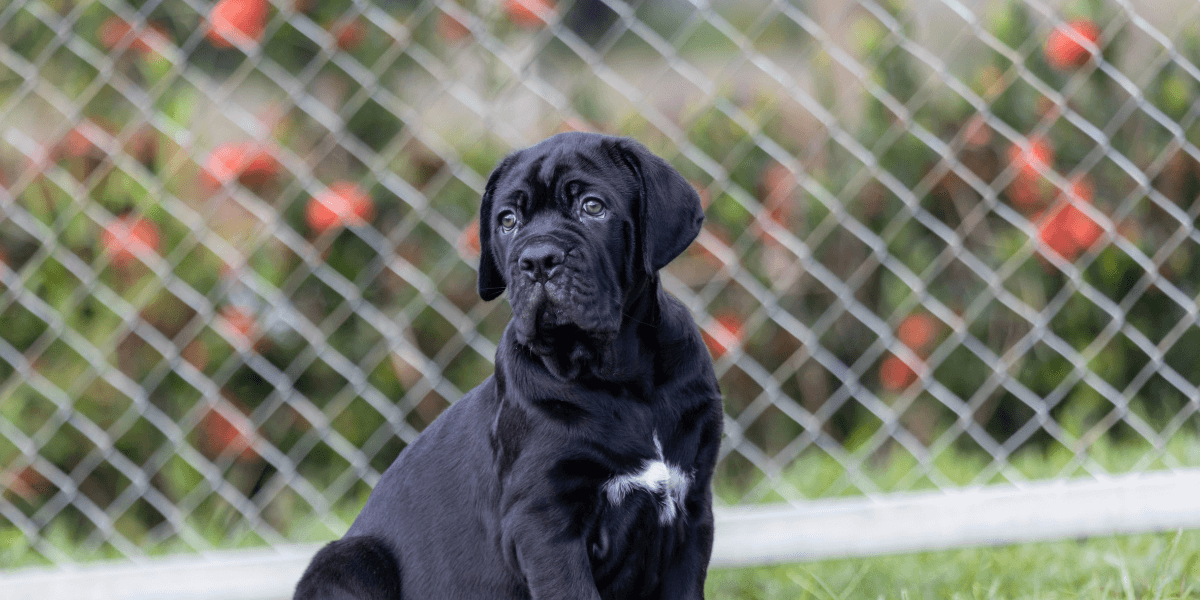
To ensure your Mastiff benefits from exercise, avoid these common pitfalls:
- Overexertion: Mastiffs are prone to overheating and joint issues
- Intense Workouts: High-impact activities can strain their joints and muscles
- Skipping Exercise: Regular activity is essential for your Mastiff’s physical and mental health
- Improper Cool-Down: Neglecting to cool down can lead to muscle stiffness and discomfort
- Inconsistent Routine: Irregular exercise can lead to weight gain and behavioral issues
- Ignoring Warm-ups: Failing to warm up can increase the risk of injuries during exercise
5. Tailoring Exercise to Your Mastiff’s Age and Health
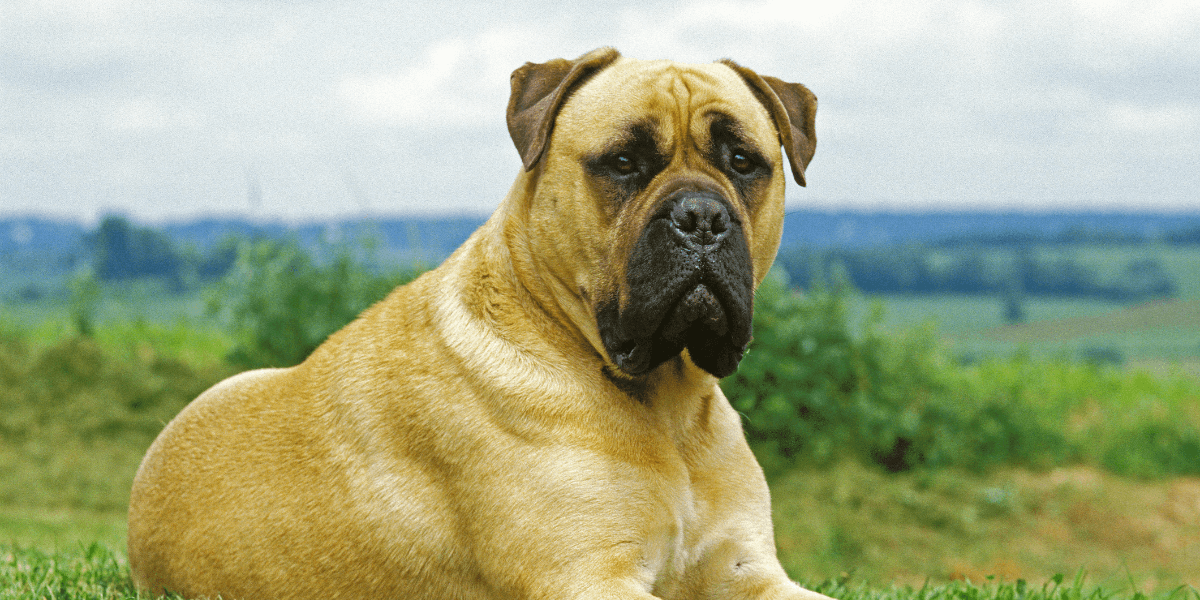
Different life stages and health conditions require adjustments in exercise:
- Puppies: Young Mastiffs have boundless energy but need controlled exercise to avoid joint issues
- Adults: Monitor their weight and adjust the intensity as needed
- Seniors: Focus on low-impact exercises and be attentive to signs of discomfort
- Age-Appropriate Activities: Customize exercise based on age-related energy levels and mobility
- Health Conditions: Adapt routines to accommodate any specific health issues like arthritis or obesity
Learn more about the history and traits of Mastiffs in this informative article from Articles Factory.
6. Incorporating Mental Stimulation
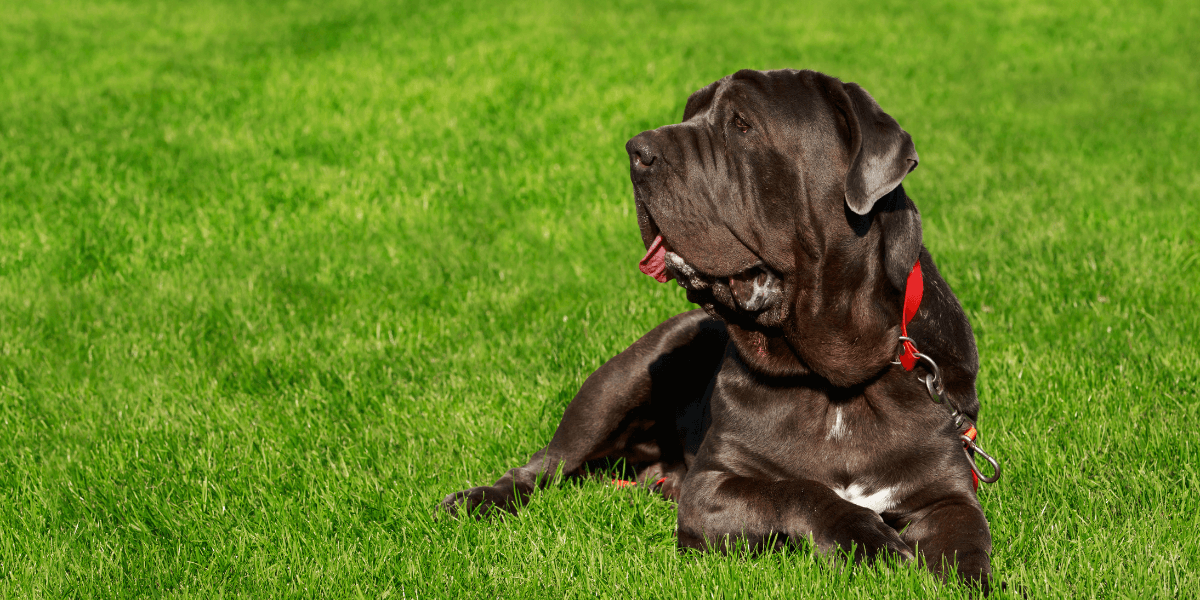
Exercise isn’t just about physical activity.
Mental stimulation is equally important:
- Puzzle Toys: Engage your Mastiff’s mind with toys that challenge them to think and solve problems
- Training Sessions: This provides mental stimulation and reinforces good behavior
- Socialization: Social activities provide mental enrichment and prevent boredom
- Interactive Games: Use treat-dispensing toys or hide-and-seek to keep their mind active
- New Environments: Exploring different places and scents stimulates their senses and curiosity
- Scent Work: Introduce nose work games to tap into their natural sniffing instincts
- Trick Training: Teach new tricks to challenge their brain and enhance bonding with you
7. Signs of Overexertion and How to Address Them
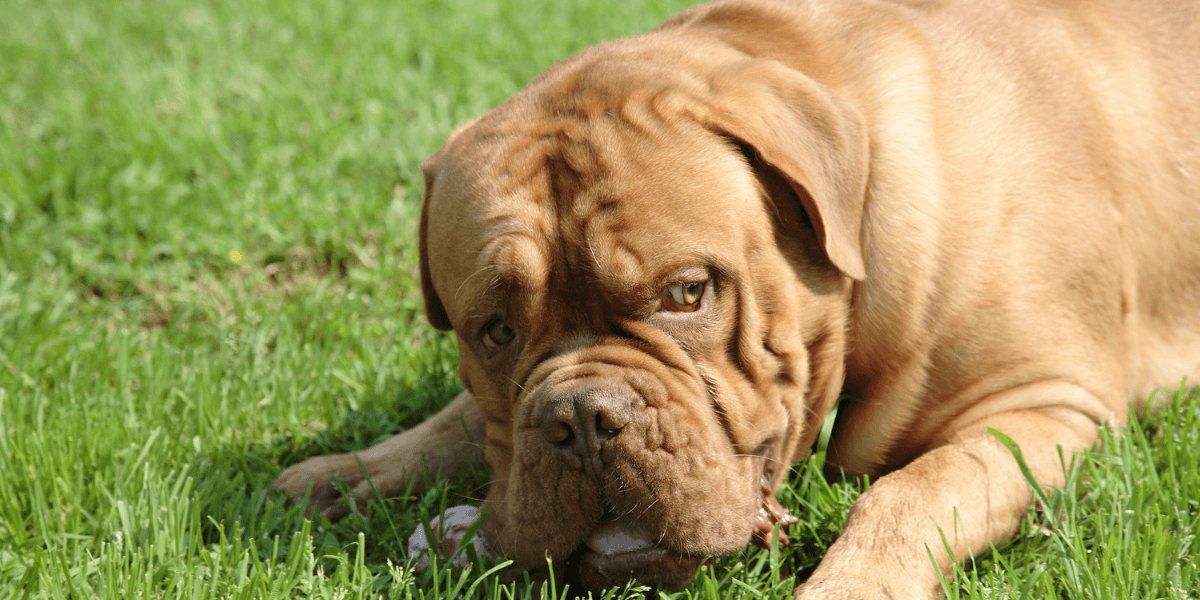
Monitoring your Mastiff during exercise is crucial to prevent overexertion:
- Signs of Overexertion: Excessive panting, lethargy, or reluctance to continue exercising
- Cooling Down: Provide water and a cool place to rest after exercise
- Veterinary Advice: If you notice persistent issues or unusual behavior, consult your veterinarian
- Excessive Thirst: Frequent drinking and signs of dehydration can indicate overexertion
- Monitor Breathing: Watch for heavy or rapid breathing and slow down if needed
- Limping or Stiffness: Check for any signs of discomfort or difficulty moving
- Loss of Appetite: If your Mastiff isn't eating normally, it may be a sign of overexertion
While focusing on Mastiff health, you can also explore our guide on Cane Corso Health Issues for valuable insights.
FAQs
1. How much exercise does a Mastiff need daily?
-
Aim for 30-60 minutes of exercise daily
2. What activities are best for Mastiff Exercise Needs?
-
Gentle walks and low-impact play are ideal
3. Can Mastiffs handle intense workouts?
-
No, they prefer moderate exercise to avoid joint stress
4. How often should I exercise my Mastiff?
-
Twice a day is recommended for consistent fitness
5. Is swimming good for Mastiff Exercise Needs?
-
Yes, swimming is low-impact and great for their joints
6. What are signs of over-exercising a Mastiff?
-
Watch for fatigue, limping, or excessive panting
7. Can indoor play be sufficient for Mastiffs?
-
It can, but regular outdoor exercise is also important
Conclusion
- Meeting Mastiff Exercise Needs ensures a healthier, more joyful companion
- Consistent exercise routines are key to your Mastiff’s overall well-being
- Tailor activities to match your Mastiff’s age, health, and energy levels
- Regular physical activity helps prevent obesity and related health issues
- Incorporate playtime and socialization to keep your Mastiff engaged
- Monitor your Mastiff’s progress and adjust their exercise plan as needed
- Happy Mastiffs are active Mastiffs, leading to a more fulfilling life
- Make exercise a part of your Mastiff’s daily routine for long-term benefits
Leave a comment with your experiences and tips!
Your feedback can help others provide the best care for their beloved pets!
References
For further reading on Mastiff care and exercise, check out these reputable sources:
- Mastiff Exercise Needs Explained
- How Much Exercise Does a Mastiff Need?
- Orthopedic Dog Beds for Large Dogs: A Comprehensive Guide
- Mastiff Exercise Needs
- What are the best treatments for dog hip and joint pain?
Thank you!




